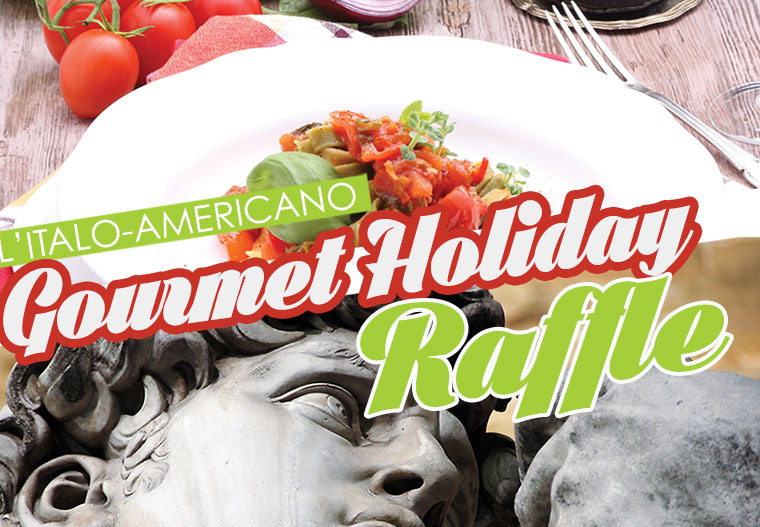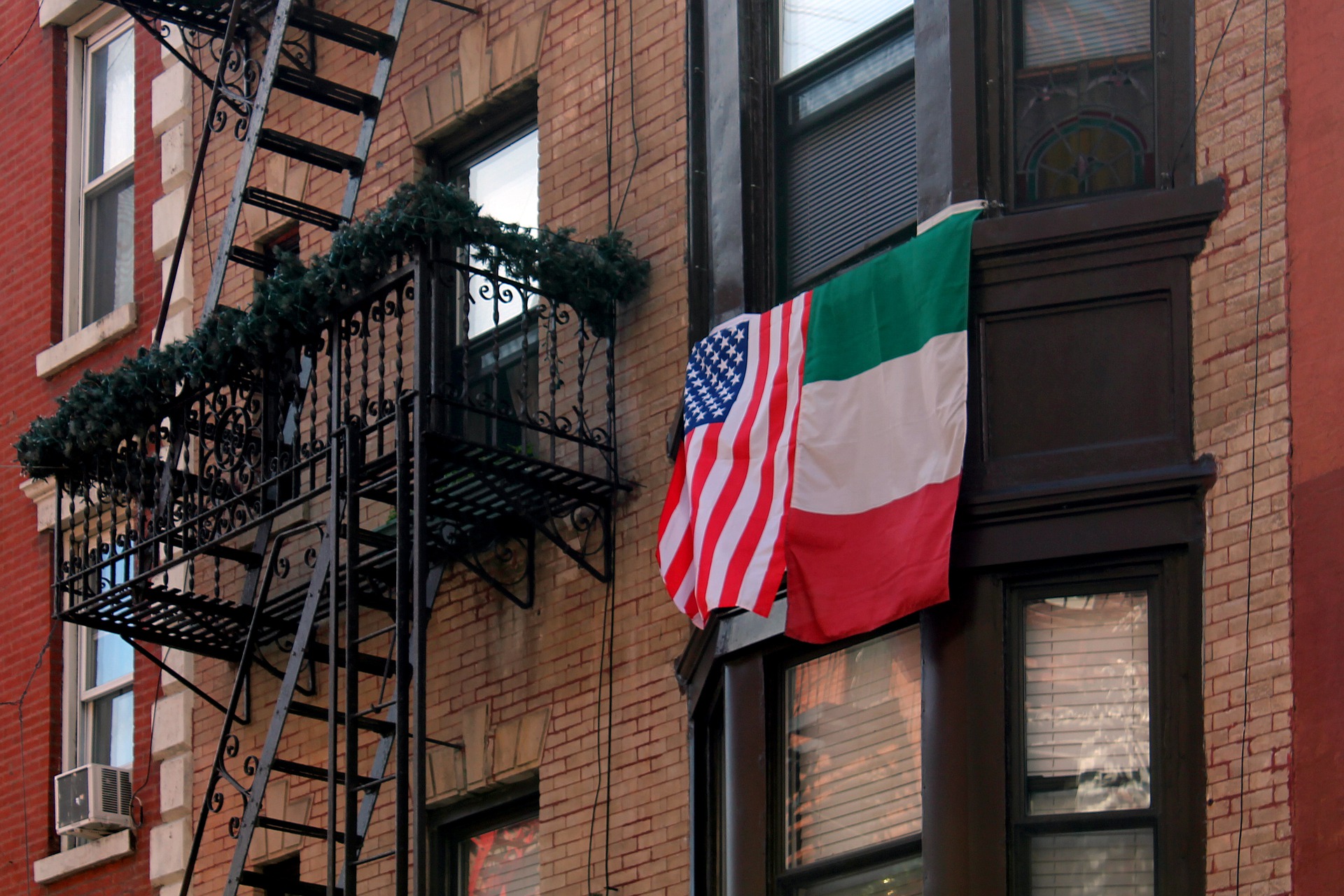If I would ask any of you to tell me what is the capital of worldwide cinema, the obvious answer would be, Los Angeles. To be precise, its most famous and glamorous neighborhood, Hollywood.
What about the capital of worldwide cuisine? I challenge any of you to come up with an unequivocal answer. Some of you may disagree, but I don’t think anybody has the answer to that. Truth is that every country has its own culture and, therefore, its own food.
At any rate, Italy constantly ranks among the top choices in terms of prime food and wine.
Simultaneously to the 12th edition of Cinema Italian Style, celebrating the very best selection of contemporary Italian cinema, from November 16th to the 23rd (but with events going on until the end of the month), Los Angeles celebrated the first Week of Italian Cuisine in the World, turning into the legitimate worldwide capital of Italian cuisine, through a showcase of the very best products and culinary traditions from our peninsula.
Here is highlighted, in Antonio Verde’s – our Consul General of Italy in Los Angeles – words, the significance of the first Week of Italian Cuisine in the world:
“The launch of the ‘Week’ represents an important joint effort of the Ministry of Foreign Affairs and the International Cooperation and of MIPAAF–Ministry for Agricultural Policies, Food and Forestry, that aim at promoting premium Italian cuisine, thereby executing the so-called ‘Food Act’, our government’s action plan to further develop 2015 Milan Expo’s guidelines.
These efforts respond to the necessity of fighting the phenomena of food counterfeiting and ‘Italian Sounding,’ still too present in the United States, and harmful to our Country’s image and economy.
The Consul General drew our attention to the well-oiled machine, essential to any successful initiative, by the whole “Sistema Italy–Team Italy,” made up of the Consulate General itself, the Italian Cultural Institute (IIC), the Italian Trade Commission (ICE), the Italian Tourism Board (ENIT) and the Italy-America Chamber of Commerce West (IACCW). To this list, it must be added the precious collaboration of the Italian Academy of Cuisine.
Consul General of Italy in Los Angeles Antonio Verde went on to highlight some of the major events held in L.A., such as master classes taught by Cristina Bowerman and other master chefs, along with the movie-inspired menu offering of local restaurants, recognized with quality marks, “Marchio Q” and “Marchio AIC” (promoted by the Italian Association of Celiac Disease).
The Consul General emphasized the special connection between our cuisine and Italian cinema, celebrated at the 12th edition of Cinema Italian Style, that, this year, paid tribute to the centennial of Italian Maestro, Dino Risi, whose restored masterpiece Il Sorpasso was screened at the Egyptian Theater last week.
In conclusion, our highest institutional representative in L.A. declared: “I’d like to thank deeply our two chefs, Cristina Bowerman and Antonio Murè, not only for having made this convivial event an important showcase of the DOP food products of Italy, but also – thanks to the usage of food products coming from the territories, stricken by the recent earthquakes in Italy’s central regions – for having enabled us to express our solidarity and to offer concrete help to the affected economies of those areas.”
In the same occasion of the official garden party, presided by the Consul General of Italy in L.A., I had the chance to chat briefly with the two Italian chefs, Cristina Bowerman and Antonio Murè, who supervised the menu of the reception and, most importantly, have been great ambassadors of our cuisine in the US.
Cristina, born in the village of Cerignola, in Puglia (southern region of Italy), initially seems bound to a forensic career, as she graduates in Law from the University of San Francisco (USF), in California.
However, she eventually finds her vocation in cooking, and she graduates in Culinary Arts at the Cordon Bleu’s Culinary Academy, in Austin, Texas.
In 2004, Bowerman feels the urgency to reconnect with her Italian roots and moves back to Italy. Since 2006, she presides over the kitchen at The Glass Hostaria, in the historical neighbor of Trastevere, Rome’s nightlife’s main epicenter.
Since 2012, she is at the helm of the kitchen for another Rome’s innovative restaurant, Romeo Chef & Baker, owned by her companion, restaurateur Fabio Spada.
Among her numerous and prestigious awards, in 2008, she received the two forks by Gambero Rosso – major Italian food and wine magazine and publishing group – and, in 2010, she was the only woman to receive a Michelin Star – worldwide hallmark of fine dining quality.
At 2015 Expo in Milan, Cristina Bowerman was among its Chef Ambassadors and she now plays the role of international food ambassador for the recently co-founded, Italian Ambassadors of Taste Association.
Here is a short chat we had, before she was “circled” by Italian TV giants, the likes of Sky TG24 or RAI.
How did the multicultural diversity, experienced during the years you spent in the US, has influenced your cooking philosophy?
A full new world opened up to me. Neither Italian cuisine, nor Japanese nor any other, are the best in the world. There are no specific products, but rather certain characteristics that make every cuisine unique and special.
I always like to repeat how, once upon a time there was the compulsory military service, today it should be established a mandatory period to be spent abroad. I’m not talking about the Erasmus Exchange Study Program, but an authentic immersive experience outside of your home country.
Living abroad helps you realize how, despite big and small differences in customs, traditions and even religions, we are all defined by the same humanity.
What’s in your opinion the importance of bringing the first Week of Italian Cuisine in the World to L.A.?
Last July, I co-founded the Italian Ambassadors of Taste Association and I was elected President.
This initiative in Los Angeles is part of our first concrete worldwide program of spreading knowledge of authentic Italian products and how to properly use them.
For instance, last night in occasion of the kick-off of the Week at Mr. C Hotel in Beverly Hills, and today again I’m serving a risotto, that is too raw for the US taste, but it’s important to show people the right cooking time and preserve our tradition from certain trends in the market.
Other master chef, Antonio Murè, born in Porto-palo di Capo Passero, Sicily, but raised in Parma, Emilia-Romagna (to notice how both regions boast an outstanding culinary tradition), curated the reception’s menu, that included two varieties of pasta, veal shank, mashed potatoes, assorted vegetables etc.
The Michelin award-winning chef learned the ropes of the trade in several hotels and restaurants in Italy, including the notable Il Meloncino, in Cortina d’Ampezzo, Veneto.
In 1995, Murè left the freezing cold of the renowned winter ski resort for the Californian scorching sun. He relocated to Los Angeles, where he started working at the Italian restaurant, Il Moro.
Except for a parenthesis in Las Vegas, where Antonio worked at Valentino restaurant, the chef worked in several top-notch L.A.’s restaurants, before opening, in 2004, his own, Piccolo, in Venice, California.
Murè, then, inaugurated Ado Ristorante, that has turned now into a real brand, including Casa Ado Restaurant, Adoteca Brentwood and the Ado Italian Marketplace.
Antonio’s newest venture once again in Venice, CA, on the ashes of former Ado Ristorante, is restaurant and wine bar, Barrique (that opened in 2009).
And now, let’s hear directly a few words from stellar chef, Antonio Murè.
How did you develop the passion for cooking?
I was born in a village in Sicily, but raised in Parma. I started developing the passion for cooking at a very young age, as, on Sundays, I used to help my mom and my aunts to fold the ravioli and to prepare the red sauce for our meals.
How was the adjusting process to Los Angeles, when you relocated in 1995?
Before moving here, I cut my teeth in several prestigious Italian hotels and restaurants. The Italian restaurant industry was “high evolved”, compared to the “primitive” interpretation of Italian cuisine in California and the US.
Spaghetti with meatballs were still the hallmark of local Italian restaurants. Since I opened my first restaurant here in 2004, I have been changing the culinary landscape, for instance introducing the typical Italian antipasti.
What’s the most important aspect of the first Week of Italian Cuisine in the World?
Essential aspect is presenting and preserving our culinary traditions, largely based on the freshness and premium quality of our products.
I’ve had the opportunity to experience first-hand the tough process of making the Grana Padano cheese. Those cheese-makers deserve a lot of admiration for keeping this tradition alive.































